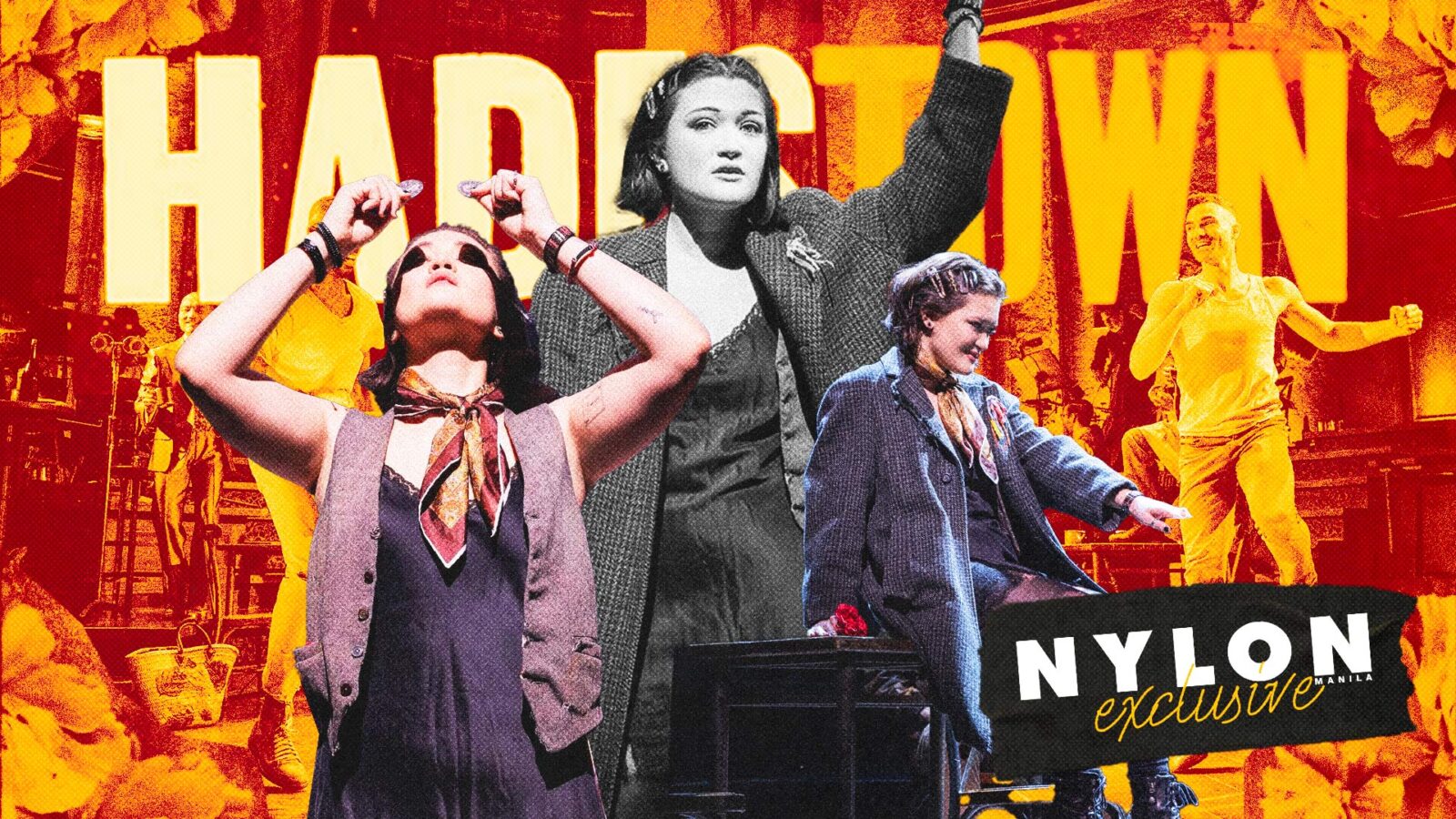Filipino-American actress and singer Isa Briones takes a journey way down Hadestown and talks her family, activism, playing Eurydice on Broadway, and the ineffable power of musical theater.
Related: How David Park Manifested A Role Of A Lifetime As Part Of The Hamilton International Tour Cast
Whether it’s talking about her family, Hadestown, or the power of musical theater to inspire people or make them feel the breadth of emotion, Isa Briones brims with passion—a young artist embodying what it means to weave artistry with advocacy.
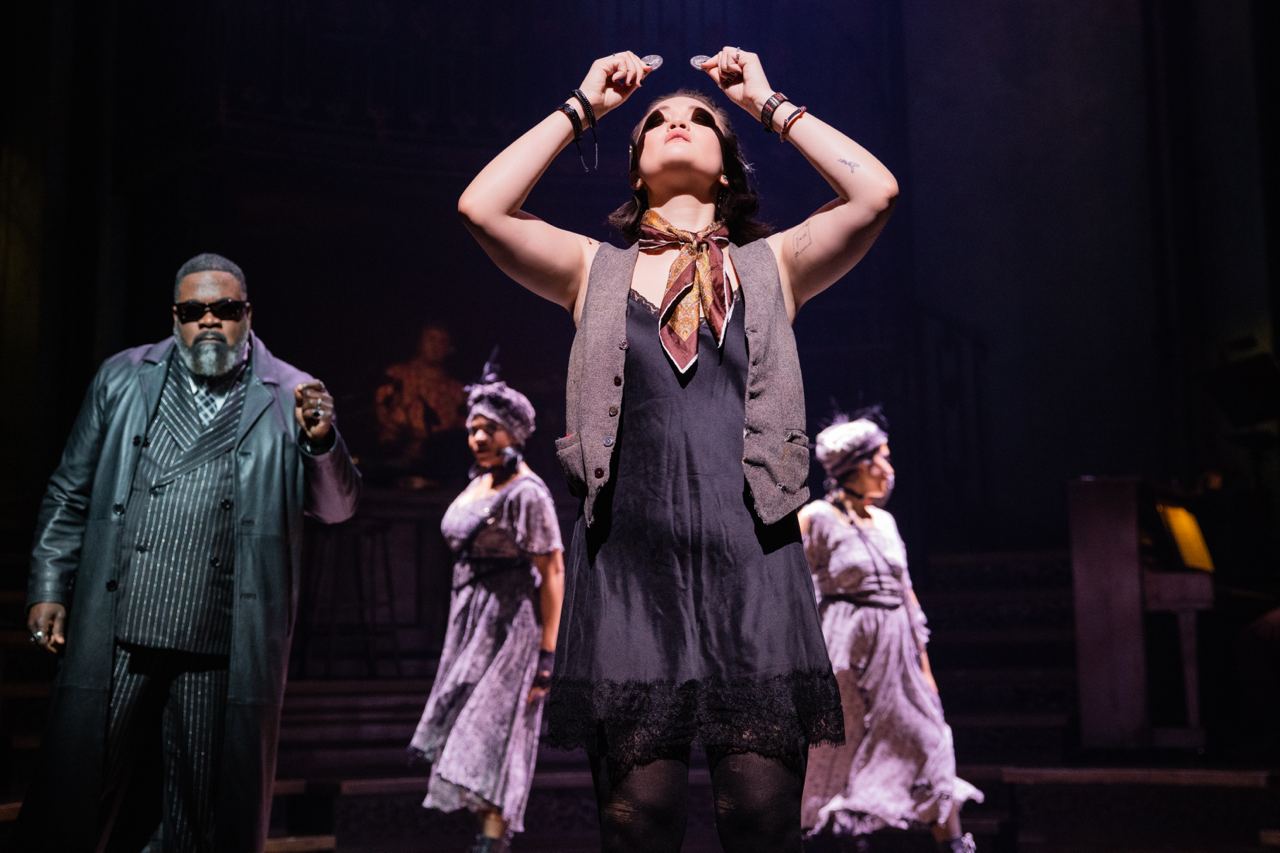
Hadestown is a Tony and Grammy award-winning musical by singer-songwriter Anaïs Mitchell which tells a version of the Greek myth of Orpheus and Eurydice. The setting and music is reminiscent of New Orleans, jazz and blues, and speakeasies, with allusions to modern socio-political issues.
Isa Briones plays the aforementioned Eurydice, a young girl who longs for a life beyond the cold, poverty, and strife. She acts opposite Jordan Fisher’s Orpheus, a poor orphan and musician who vows to end their struggle and bring back spring with a song. Hadestown also features the narrator Hermes (currently played by Isa’s father and actor Jon Jon Briones), the Fates, as well as the story of Persephone and Hades, the latter of which is the owner of Hadestown, a bleak underground factory filled with exploited, disheartened workers.
The 25-year old actress, singer, activist, and now Broadway star sat down with NYLON Manila, all the way from New York, to talk about her journey so far and just how much the art of musical theater is both reflection and resistance.
WAY DOWN HADESTOWN
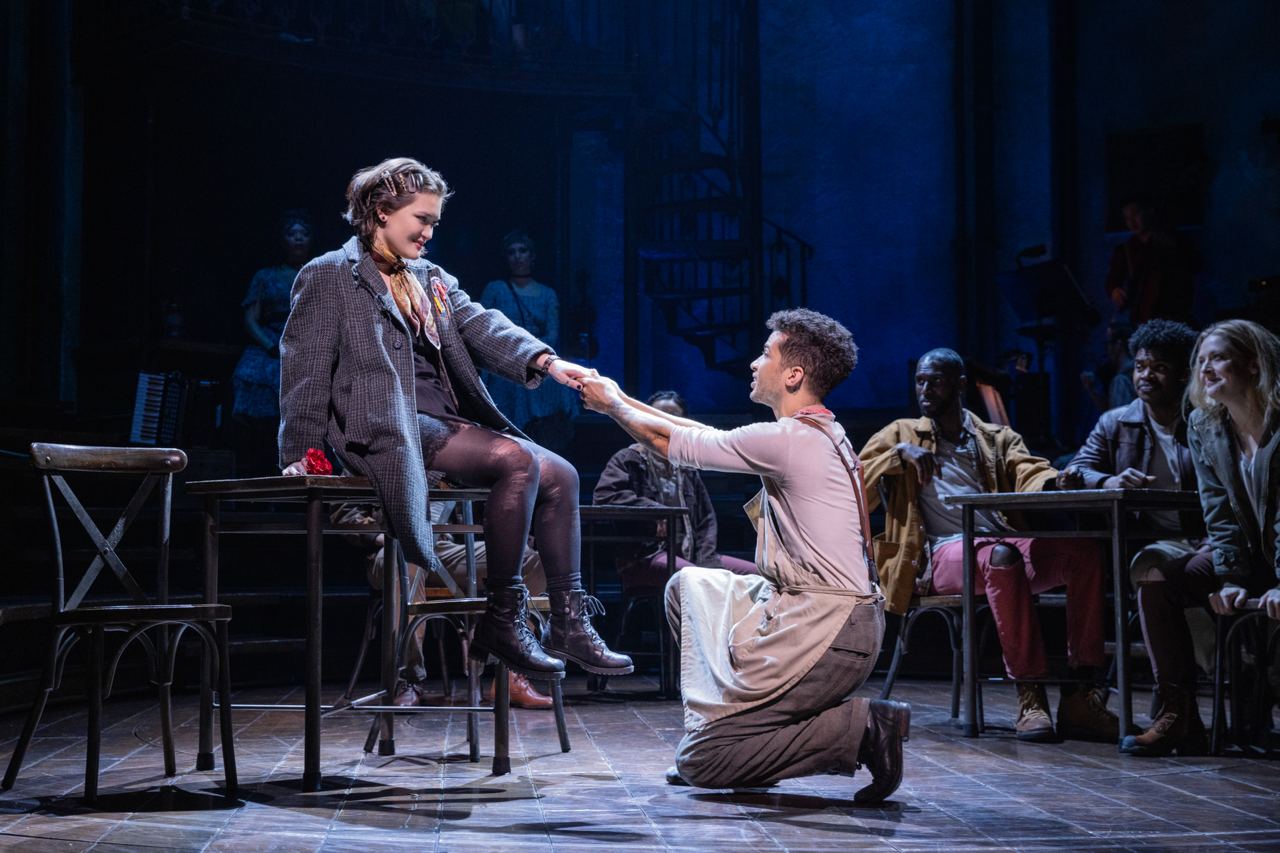
The acclaimed Hadestown is a sung-through modern musical retelling of the ancient Greek myth of Orpheus and Eurydice, in which Orpheus uses his music to try and free his lover Eurydice from death. He strikes a deal with Hades, where the god of the underworld lets Orpheus lead Eurydice out of the underworld, as long as he does not turn and look at her. But of course, he does. And whether it was because of doubt, magic, or simply because he loves her, this tragic moment ends the age-old tale of humanity, love, grief, and loss.
Hadestown opened on Broadway in 2019, but Isa got the role of Eurydice relatively recently, starting her run in March of 2024, and ending in June. She got the role alongside her father, longtime musical actor Jon Jon Briones, who currently plays Hermes. She excitedly revisits the moment they first FaceTimed each other, immortalized in a screenshot, gushing over getting their roles.
“Not everyone gets to do that with their family, with someone they love so much,” she says of working onstage with her father. “My parents are the reason I’m an actor.”
Isa was an early fan of Hadestown, but reignited her obsession over the past year, so she basically manifested earning the role of Eurydice. Saying yes to the role fulfilled a dream of hers, and being able to work with a stellar cast, including her dad, was the icing on the cake.
“[Hadestown] is so grounded,” she muses. “It’s so based in truth.” Although she loved the musical and what it stood for, saying yes to Hadestown being her Broadway debut wasn’t just because of that.
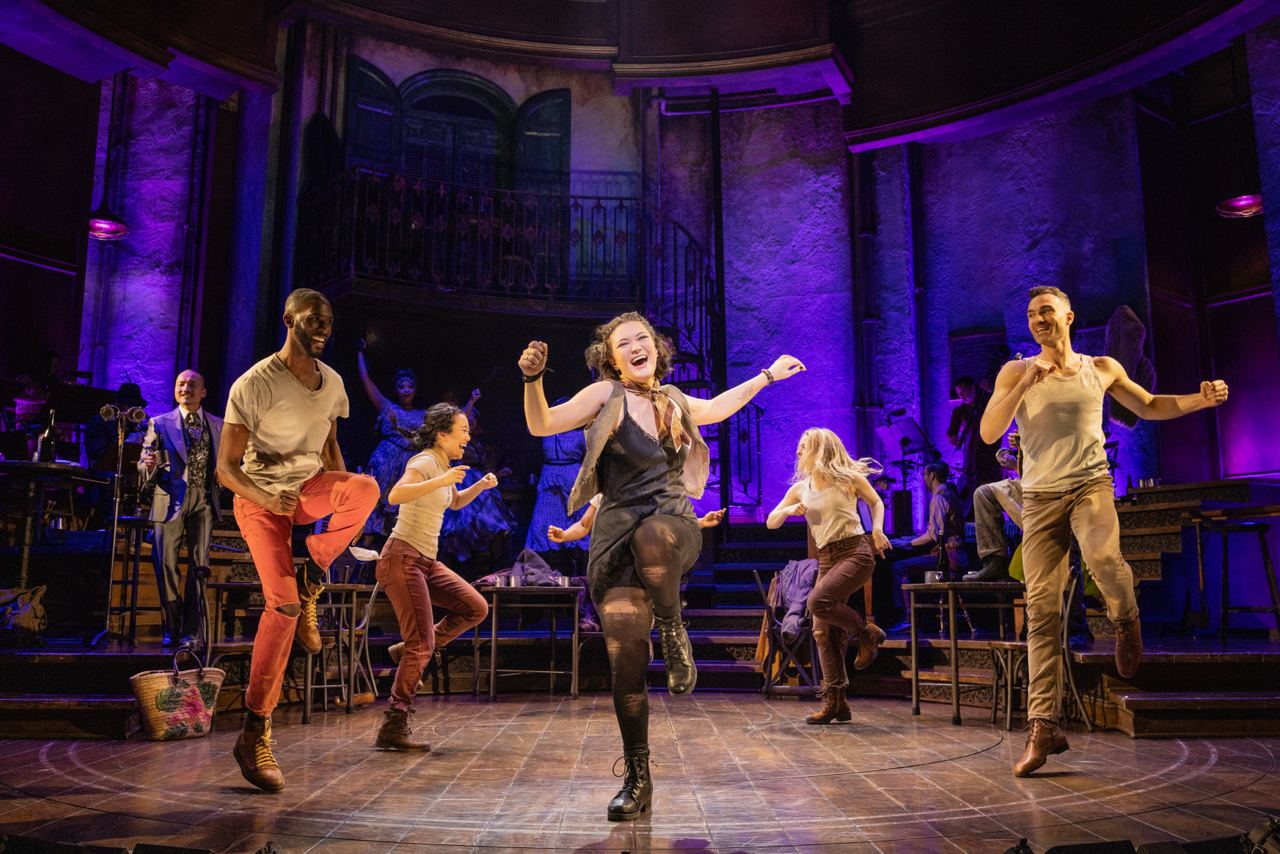
“Well, as an actor you just want a job,” she smiles wryly. “My family and I are in a good place right now, but it hasn’t always been like this. We have not always had jobs.”
Born in London to a musical theater family, Isa Briones has been surrounded by music, acting, and theater all her life. It’s no surprise she ended up where she is now, doing something in this world she’s loved forever. Her stage and screen roles include Peggy Schuyler/Maria Reynolds on the Hamilton Angelica tour and Dahj on TV series Star Trek: Picard (2020-2022).
She speaks highly of her parents, recounting moments where she would watch them onstage doing their thing, hearing comments about her own performance being reminiscent of her father’s (which clearly fills her with pride), and taking to heart the lessons they teach.
Her mom is a huge reason why Isa loves musicals and why she’s drawn to stories told through acting and song—to the ephemeral yet everlasting moments on a stage. “She’s always said when I was young—musicals, you sing when speaking is not enough. You are feeling something so big, that talking is not enough. You have to sing it.”
HOPE IN STORYTELLING
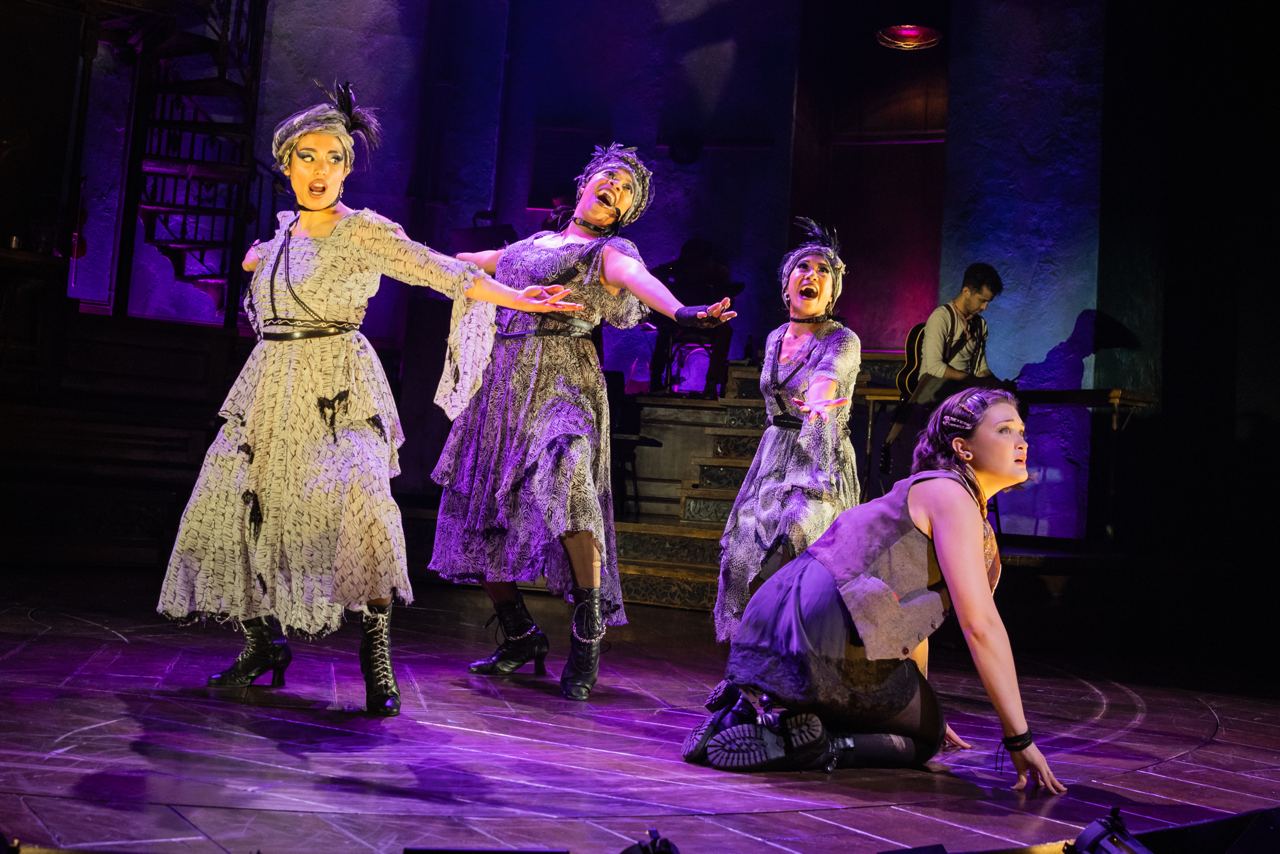
Though a tragedy, the story of Orpheus and Eurydice has been told countless times, and every time, people listen. In Hadestown, the musical follows a cyclical storytelling format, ending with a reprise of its beginning song, Road to Hell.
With lyrics like “to know how it ends, and still begin to sing it again,” it hammers in the notion that these stories need to be told, and they will be told, if only for the reason that there is value in hope—that there is value in trying again and again and again despite how futile it all seems. There is hope for new beginnings even in the most tragic of endings.
Isa shares that one of her favorite parts of performing in or even watching the show is witnessing people react to the moment Orpheus turns around, sealing the love of his life’s fate as well as his own.
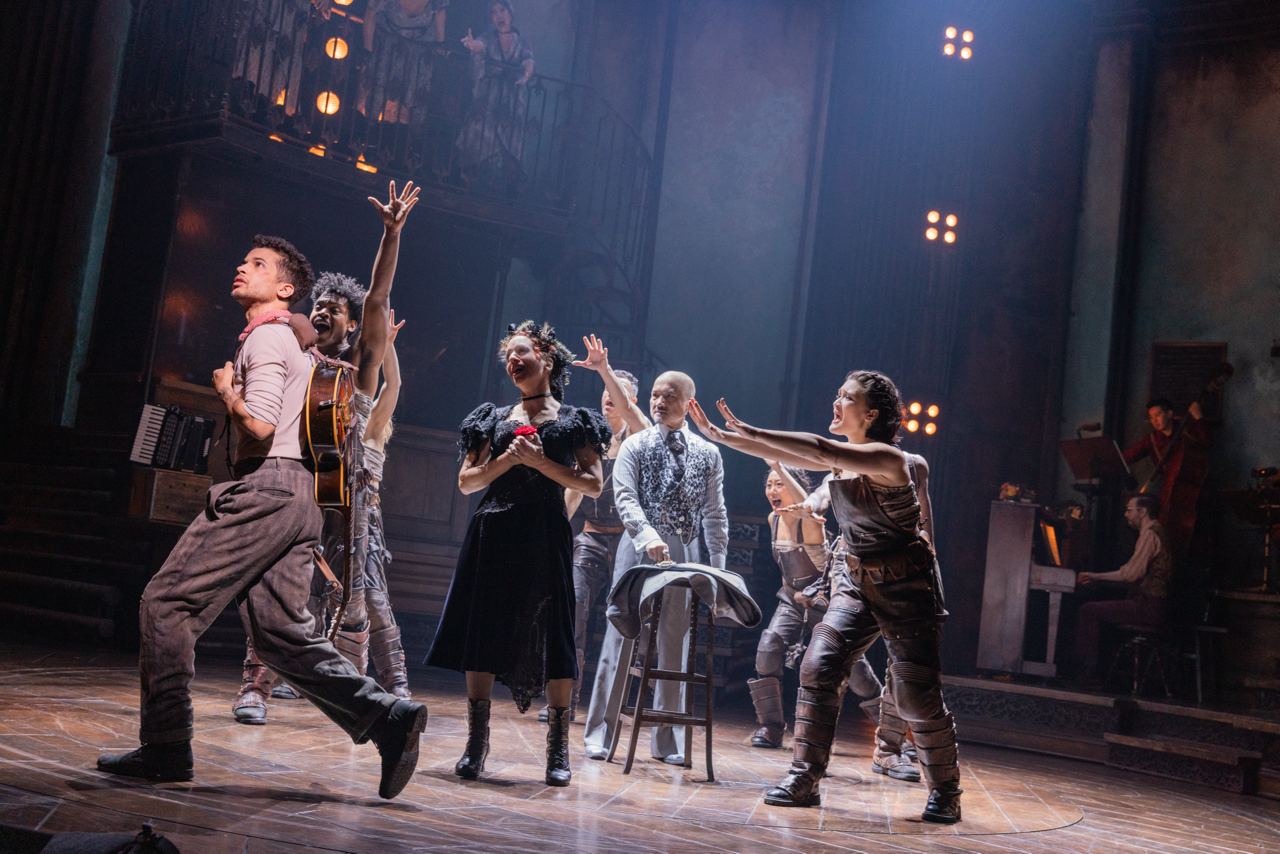
The audience, she says, would be gasping or weeping, letting their sadness and frustration escape in a tragic moment that’s been told thousands of times over. “That’s the beauty of the show,” Isa says. “Hermes tells you right at the beginning ‘it’s a sad song’.”
“It’s a tragedy, but also the point of the show is hope,” she continues. “It’s giving you hope for a second that it might turn out differently this time. It shows the beauty and the tragedy [of the story], but also why you have to keep hoping. You have to keep believing that maybe this time, things will change.”
With a show almost every night, in New York, in London, across North America, and South Korea, the tragedy of Orpheus and Eurydice keeps getting told to people who know the ending and people who don’t—all of them partaking in honoring a story of rising up against adversity, being brave enough to go to the ends of the earth for love, even if it means losing all that you love.
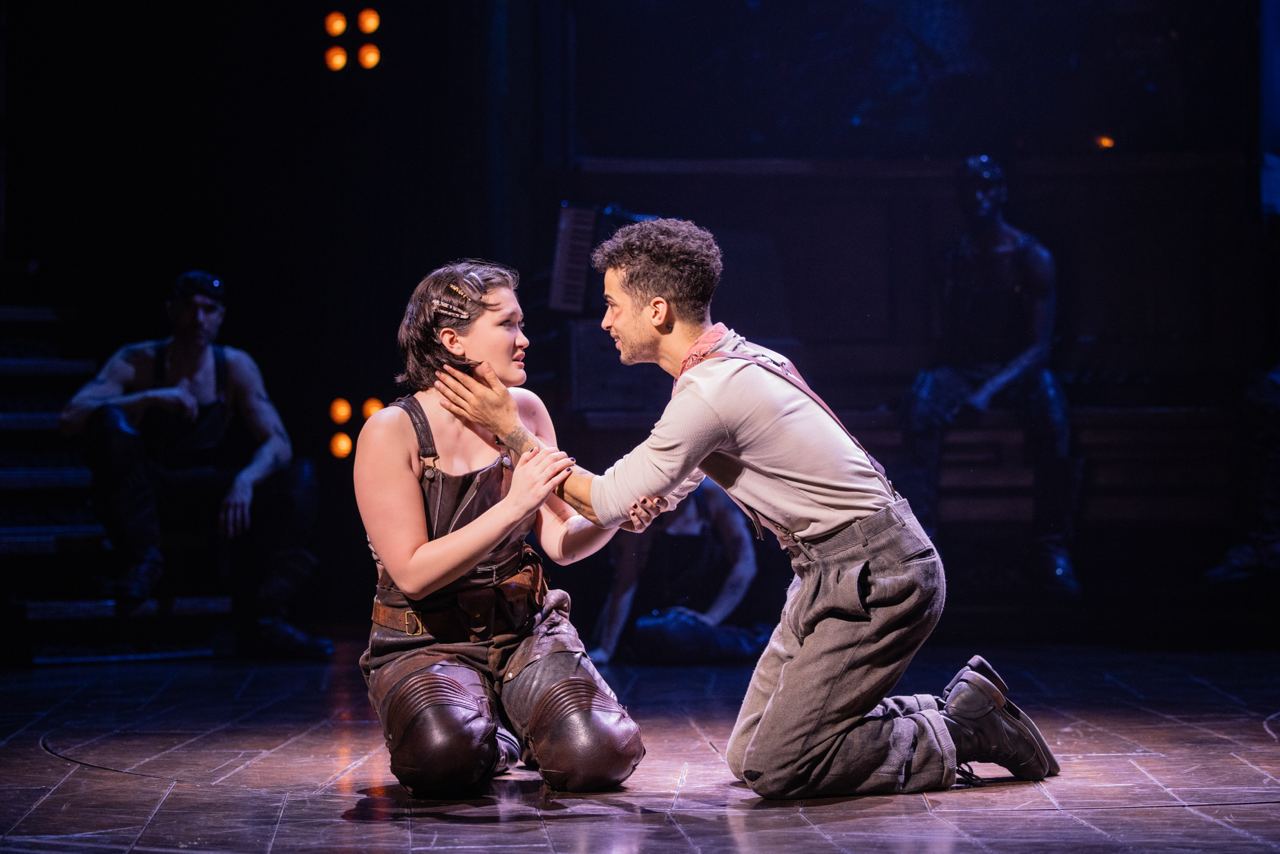
And Hadestown doesn’t just touch on hope in terms of Orpheus and Eurydice’s story. For instance, every performance of If It’s True is rousing, as Orpheus pleads and laments why his efforts aren’t enough to save Eurydice from Hades. The workers of Hadestown are, in turn, inspired to take his words and actions of journeying to the factory against all odds to heart. “[Jordan’s] If It’s True makes me want to leap up to my feet and protest,” Isa shares. “The way he delivers that song is so impactful.”
In the song, the unrest grows, the workers’ rebellion against Hades imminent. “This is a protest song,” Isa recounts her realization. “This is him gathering people to be like ‘we need to fight the power,’ and that really resonates with me.”
VOICE FOR CHANGE
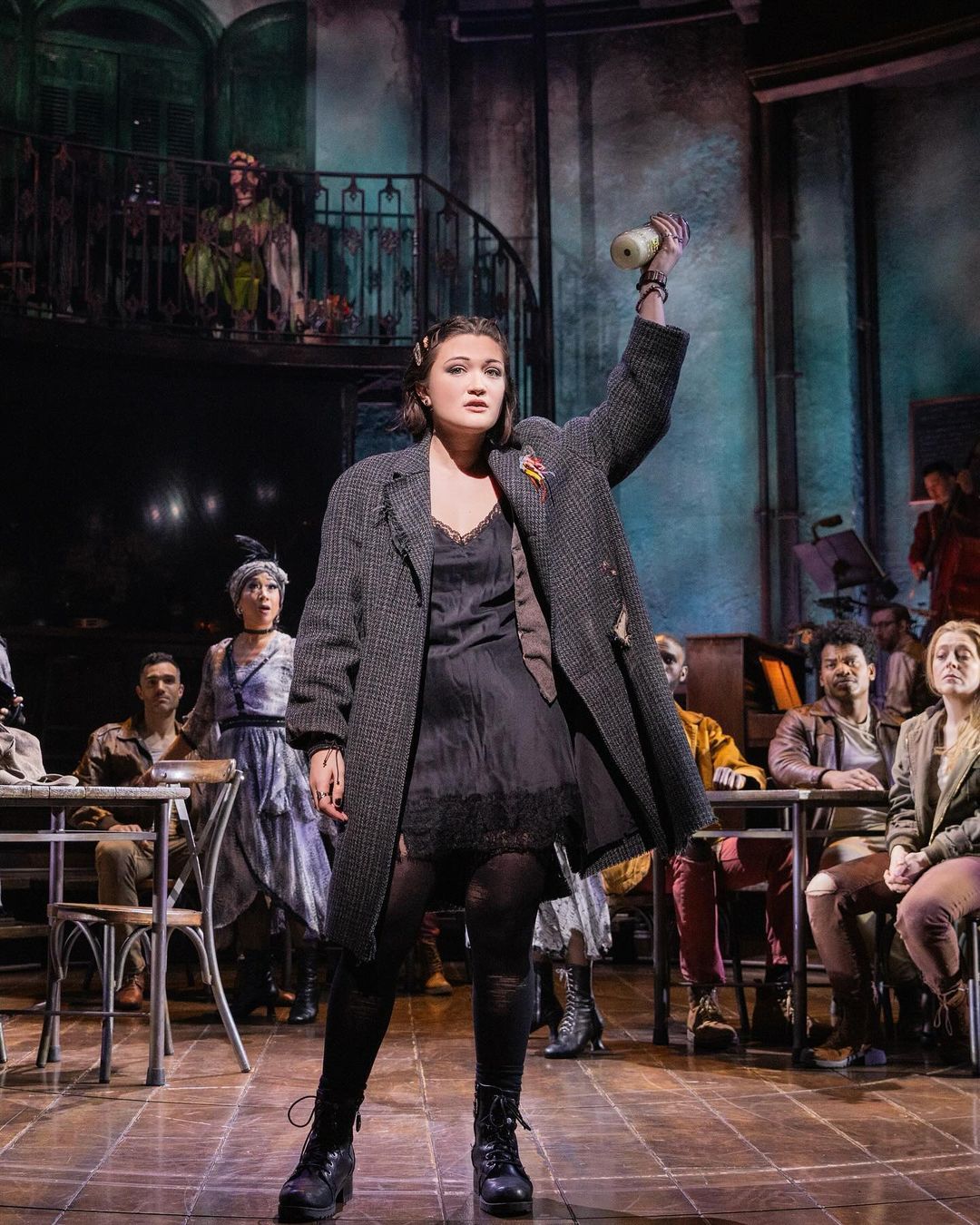
Hadestown is a layered, clever musical that touches on relevant political themes, including but not limited to labor, poverty, greed, industrialization, exploitation, and even climate change. The songs reference problems that are no less true in the world outside Hadestown, and it’s why Isa thinks it’s a “perfect” show for her to do.
She delves into how it’s so easy for her and other people, especially in the last few years, to feel helpless and hopeless when they’re fighting for a cause. We get frustrated that nothing is changing and ask ourselves ‘is what I’m doing even helping at all?’. This frustration is represented well in the musical, and is a part of the show that makes her so emotional. The activism in Hadestown, Isa describes, is artful and graceful, but impactful nonetheless.
“Unfortunately, yeah, you’re gonna get knocked down a lot,” she says . “But you have to keep fighting, because it changes things little by little. I like to think of it like, every time we do [Hadestown], something’s changing a little bit.”
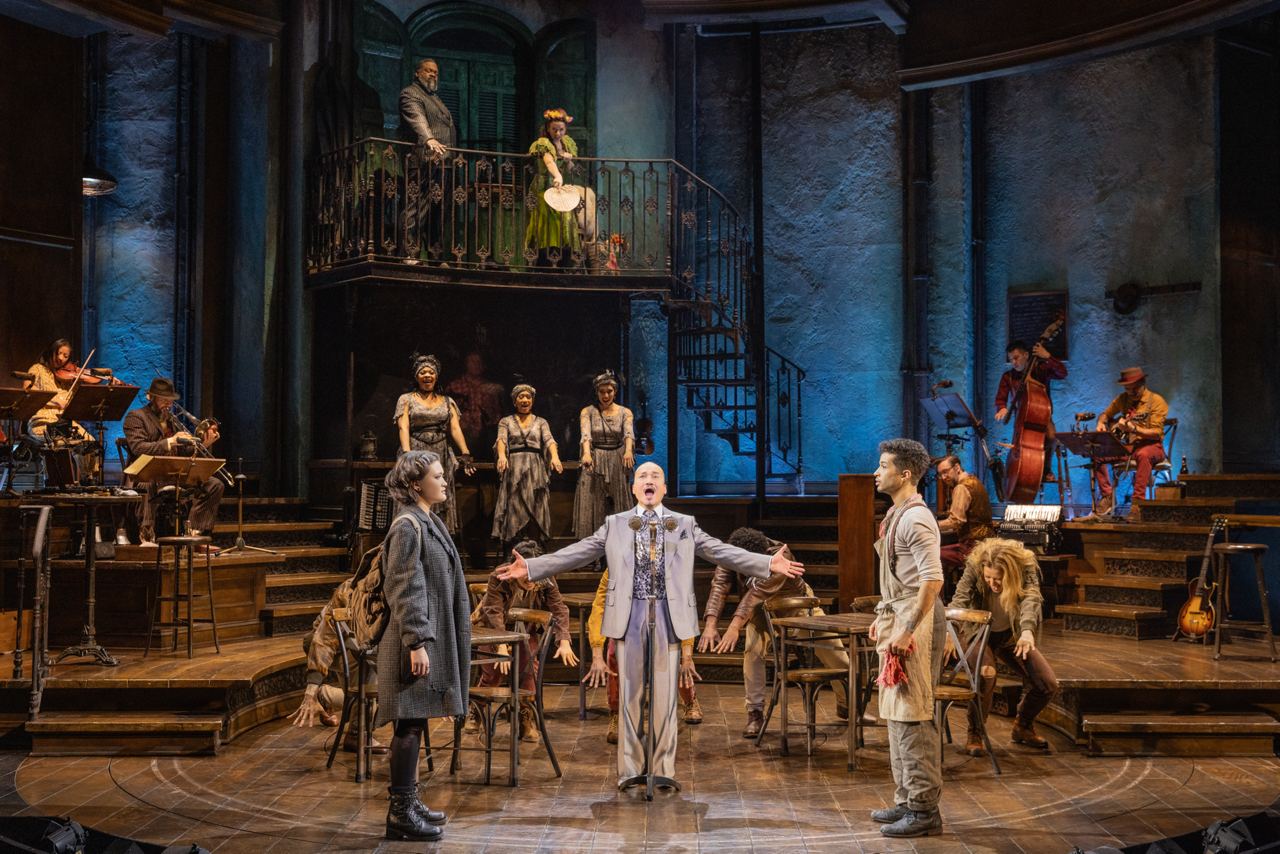
Isa also raves about newer musicals that, like Hadestown, tackle power and hope, and journeys of struggle and strength. She brings up wanting to watch Suffs The Musical, a new Broadway show about the women’s suffrage movement in America.
“The way it makes you think about where we are today—like that is what good art does. It takes you on that journey of being like, ‘look how we’ve progressed, but look how far we still have to go.'” An advocate and activist herself, Isa was on the picket line during the SAG-AFTRA strike in 2023, and is an outspoken advocate for proper and progressive Asian-American representation.
Isa’s voice carries indignation when she tells how her father’s career was met with so many roadblocks because he was Asian, and pride when she says how much he’s done for representation on stage. “You have to keep fighting,” she asserts. “Even if you are a flower blooming in the bitter snow.”
Her version of fighting, she reflects, is very reflective of her generation—loud and adamant. While for earlier generations, like her father’s, fighting is sometimes “keeping your head down and doing a hundred times more work than others just to move forward.” It’s a valid version of activism, cementing your place in an industry that isn’t as favorable to you as it is to others. Both ways to fight can co-exist, and we should be able to unite to fight for a worthy cause, whether it be love or liberation or both.
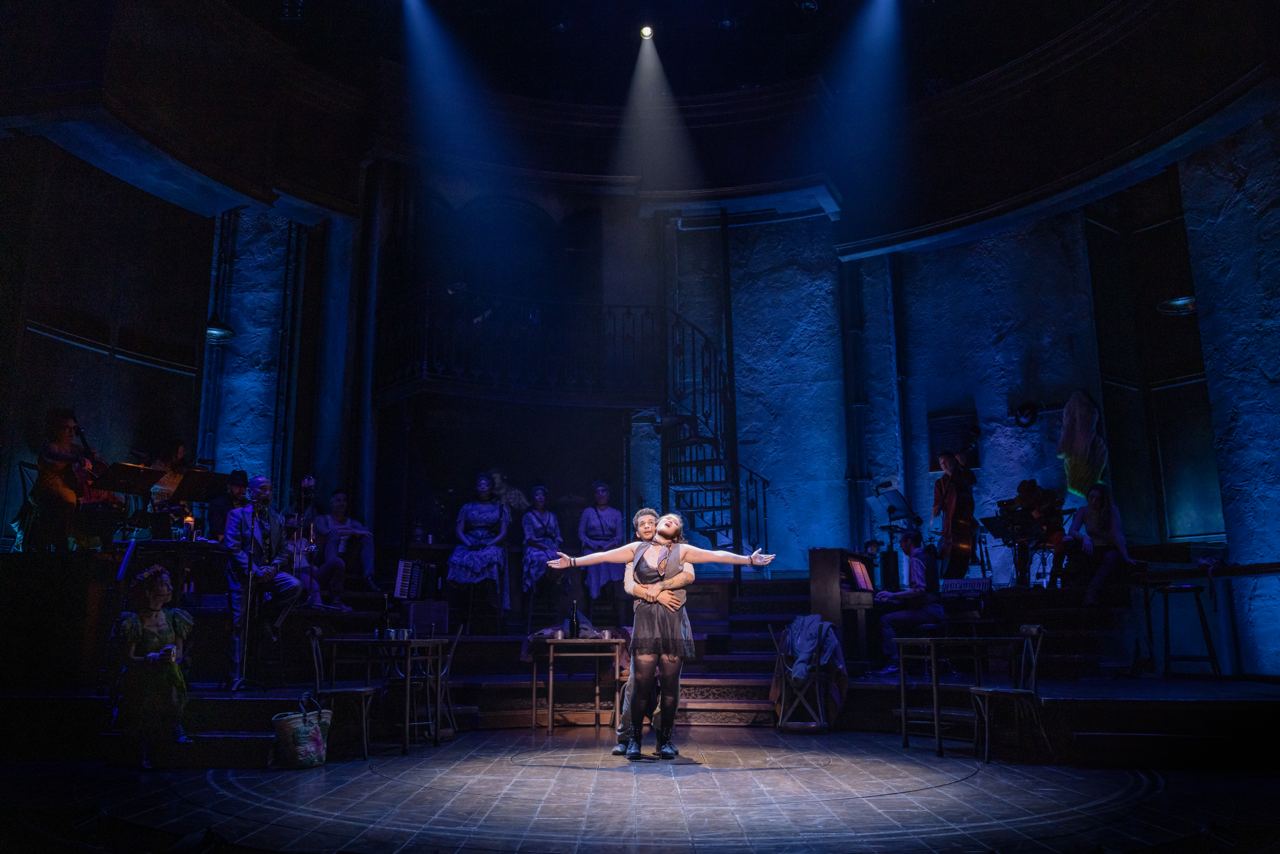
Through art, music, theater, and protesting on the streets, through all the ways we resist injustice and oppression, through choosing to go through hell for what we know is worth the fight, like Isa Briones, we hope. We hope to let the world we dream about be the world we live in now.
Images courtesy of Hadestown on Broadway and Isa Briones.
Continue Reading: What Is A Legacy? Hamilton International Tour Cast Talks About The Lasting Relevance of Musical Theater To Gen Z
